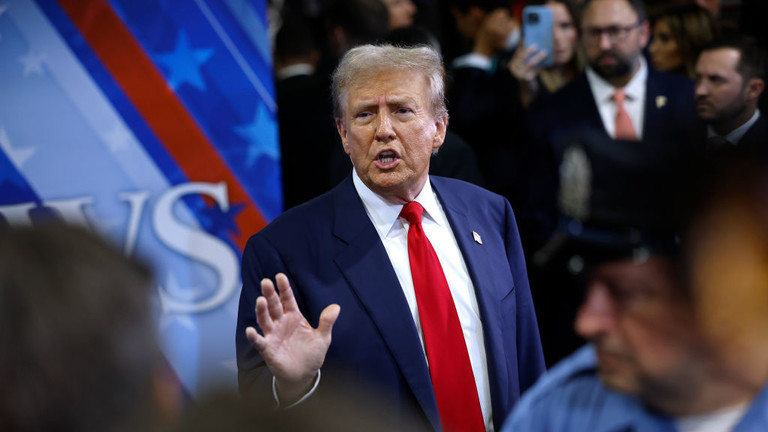Headlines
Trump Provides Update on His Mass Deportation Plan

Former President Donald Trump has shared new details about his plan for mass deportations, reigniting debates on immigration policy and enforcement strategies in the U.S.
President-elect Donald Trump informed NBC News on Thursday that one of his main objectives upon taking office in January would be to enhance the U.S. border, aiming to make it “strong and powerful.”
In line with his campaign promise for large-scale deportations, Trump stressed that his administration would feel compelled to carry them out.
Trump stated that his win over Vice President Kamala Harris gives him a mandate “to bring common sense” to the nation’s policies.
“We clearly need to strengthen and secure our borders,” he stated. “At the same time, we welcome people into our country. I’m not someone who says, ‘No, you can’t come in.’ We want individuals to enter.”
During his campaign, Trump consistently promised to implement what he described as the “largest deportation effort in American history.” When asked about the potential cost of this initiative, he replied that it wasn’t a matter of expense. He emphasized, “We really don’t have a choice. People who have killed and committed murder or drug lords who’ve wreaked havoc on nations will be sent back because they won’t remain here. There is no price tag for such actions.”
While the precise count of undocumented immigrants in the U.S. is uncertain, acting ICE Director Patrick J. Lechleitner pointed out in July that executing a large-scale deportation would face significant logistical and financial hurdles. Two former officials from Trump’s previous administration involved with immigration commented that executing this plan would necessitate collaboration among various federal agencies, including the Justice Department and the Pentagon.
Trump’s victory showcased remarkable backing from Latino voters—a group the Democrats sought to win over by emphasizing Trump’s previous statements on immigration and a contentious joke made by a pro-Trump comedian about Puerto Rico.
In a phone interview on Thursday, Trump partially credited his electoral success to his stance on immigration. He stated, “People want borders and welcome newcomers who have love for the country, but they must enter legally.”
READ ALSO: Trump Appoints First-Ever Female Chief of Staff
He emphasized the diverse coalition he gathered, noting a rise in support from Latino voters, young people, women, and Asian American voters compared to 2020.
“The president-elect noted that he foresaw a potential realignment because the Democrats’ views don’t align with the nation’s mindset. ‘You can’t advocate for things like defunding the police,’ he said. ‘These ideas are unyielding and ineffective, which people recognize.’”
Trump also shared his thoughts on recent discussions he had with Harris and President Joe Biden following the election.
“Very pleasant and respectful conversations,” Trump remarked, describing the interactions. He added that Harris “discussed the transition and expressed her desire for it to be as smooth as possible, which I naturally agree with.”
In her concession speech at Howard University on Wednesday, Harris mentioned that she assured Trump, “We will assist him and his team with their transition and ensure a peaceful transfer of power.”
In his remarks from the White House on Thursday morning, Biden encouraged Americans to “embrace the decision made by the nation” in re-electing Trump.
Trump mentioned that he and Biden agreed to meet for lunch “in the near future.”
He also revealed that he has likely spoken with 70 world leaders since Wednesday morning, including Israeli Prime Minister Benjamin Netanyahu, and described the conversation as very positive.
In addition, Trump noted that he spoke with Ukrainian President Volodymyr Zelenskyy but did not provide details about their discussion.
Although he has not yet had a conversation with Russian President Vladimir Putin, Trump noted, “I think we’ll speak.”
During the campaign, Trump pledged to put an end to Russia’s war with Ukraine if elected. In September, he proposed negotiating a deal that would be “beneficial for both sides.”
